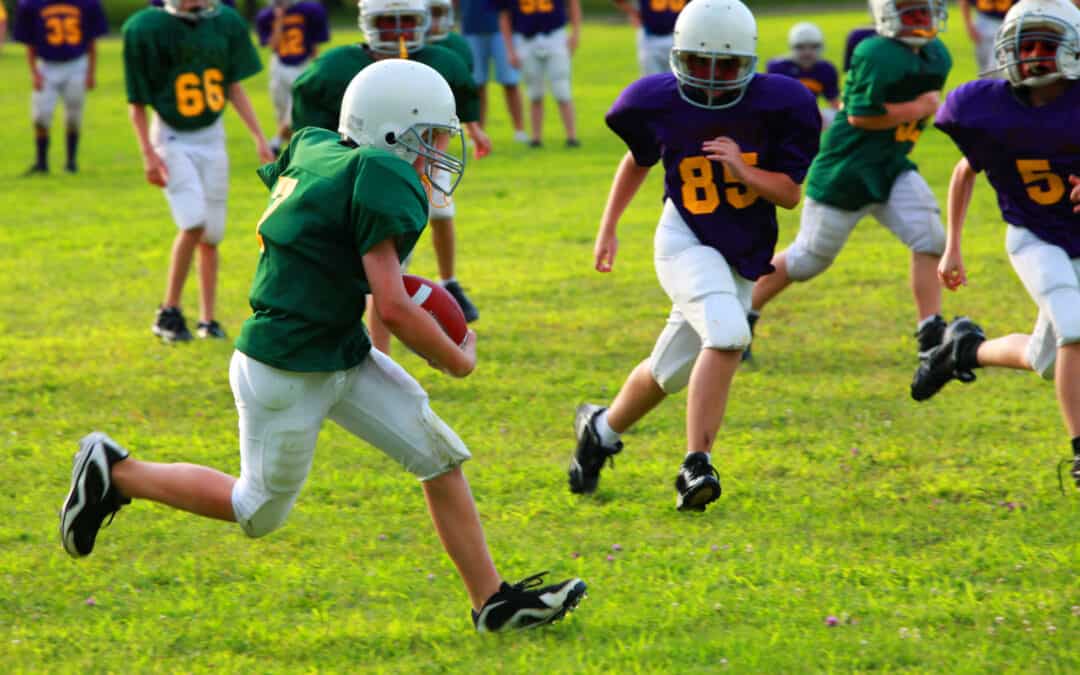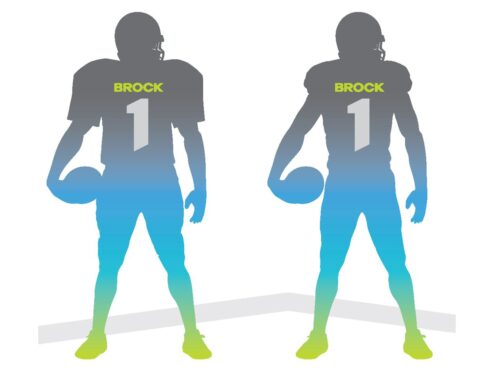Dave Duerson was a starting safety for the Chicago Bears 1985 Super Bowl championship team. He played in the NFL for 11 seasons, and was selected to play in four Pro Bowls. In the years after his retirement, Duerson struggled with memory lapses, mood swings, headaches, blurred eyesight, and other cognitive problems. He suspected these symptoms might have been a sign of brain damage caused by his football career.
On February 17th, 2011, Duerson killed himself with a gunshot to the heart. In a final message to his family, Duerson requested “Please, see that my brain is given to the NFL’s brain bank.”
As he wished, Duerson’s brain was brought to the Center for the Study of Traumatic Encephalopathy at Boston University. Dr. Ann McKee’s examination found severe shrinkage and holes in his brain, and diagnosed Duerson with an “extreme” case of Chronic Traumatic Encephalopathy (CTE).
CTE is a progressive degenerative brain disease linked to repetitive brain trauma. This includes concussions and sub-concussive hits to the head that do not cause symptoms at the time. CTE recently made national headlines when Dr. McKee examined 111 brains of former NFL players who experienced symptoms like Dave Duerson. Of these, 110 were found to have CTE.
Now, seven years after Dave Duerson’s CTE diagnosis, his family plays a key role in producing legislation aimed at protecting youth football players from long term brain damage. If successful, the “Dave Duerson Act” would ban tackle football for children under 12 in Illinois.
When my father tragically took his own life, he donated his brain to science in hopes of being part of the solution,” said Duerson’s son Tregg. “This bill honors my family’s hopes and my father’s legacy to protect future athletes and the future of football.”
The bill was filed by State Representative Carol Sente on Thursday. Sente has authored several other bills involving youth and high school football over the last six years. She called the bill “a natural progression given the data and the science.”
The Dave Duerson Act is just one part of the growing movement to limit head trauma in youth sports. The Concussion Legacy Foundation officially recommends parents enroll their pre-teens in only flag football or other non-tackle versions of the game. Chris Nowinski, founder and CEO of the Concussion Legacy Foundation, explained, “The more years you play, the greater the risk of CTE. The only way to shorten the years of tackle football is to prevent it at the beginning.” Nowinski cited research showing the number of cumulative head impacts was correlated to behavioral and neurological problems later in life.
High profile players and coaches have joined the push for youth flag football. John Madden, Pro Football Hall of Fame Coach and Broadcaster, said “with flag football you can get all the techniques. Why do we have to start with a 6 year old who was potty trained a year ago and put a helmet on him and start tackling?” Other advocates of youth flag football include Zach Ertz of the Philadelphia Eagles, and former 49er Chris Borland.
Public opinion seems to have been swayed by flag football advocacy and news stories about concussions and CTE. A recent survey found nearly 80% of Americans believe tackle football is not appropriate for children under age 14. Illinois saw extreme declines in youth tackle football participation, dropping over 20% in just one year.
However, some still feel legislation like the Dave Duerson Act is an over-reaction. Jerry Miller, a coach for Bill George Youth Football, said “the problem is that when all this happened, football was played as a gladiator sport. Football has toned down so much. Our league hardly hits.” Pop Warner spokesperson Brian Heffron shared his sentiment, suggesting millions of young players have grown up to be successful and healthy adults. “We can’t imagine elected officials mandating to parents which sports their children can play,” said Heffron. “We think the life lessons, experiences, and memories from playing this great team sport far outweigh the risks.”
In response to the backlash against the Dave Duerson Act, Chris Nowinski explained, “This isn’t about an act to ban tackle football, it’s an act to prevent children from being hit in the head hundreds of times though sport each season.” Nowinski said the bill is similar to a proposal in New York, and lawmakers in other states are also working to raise the age at which children can play tackle football.






